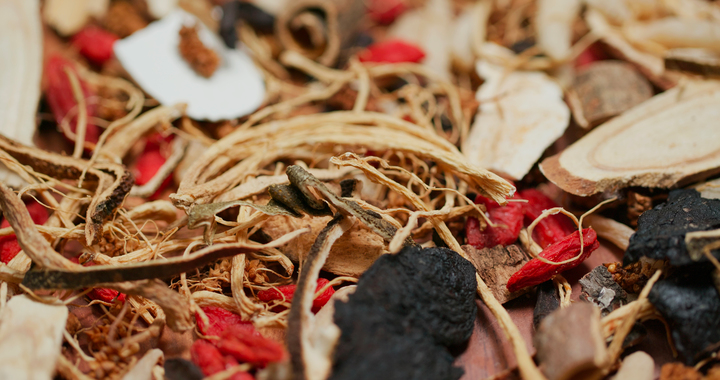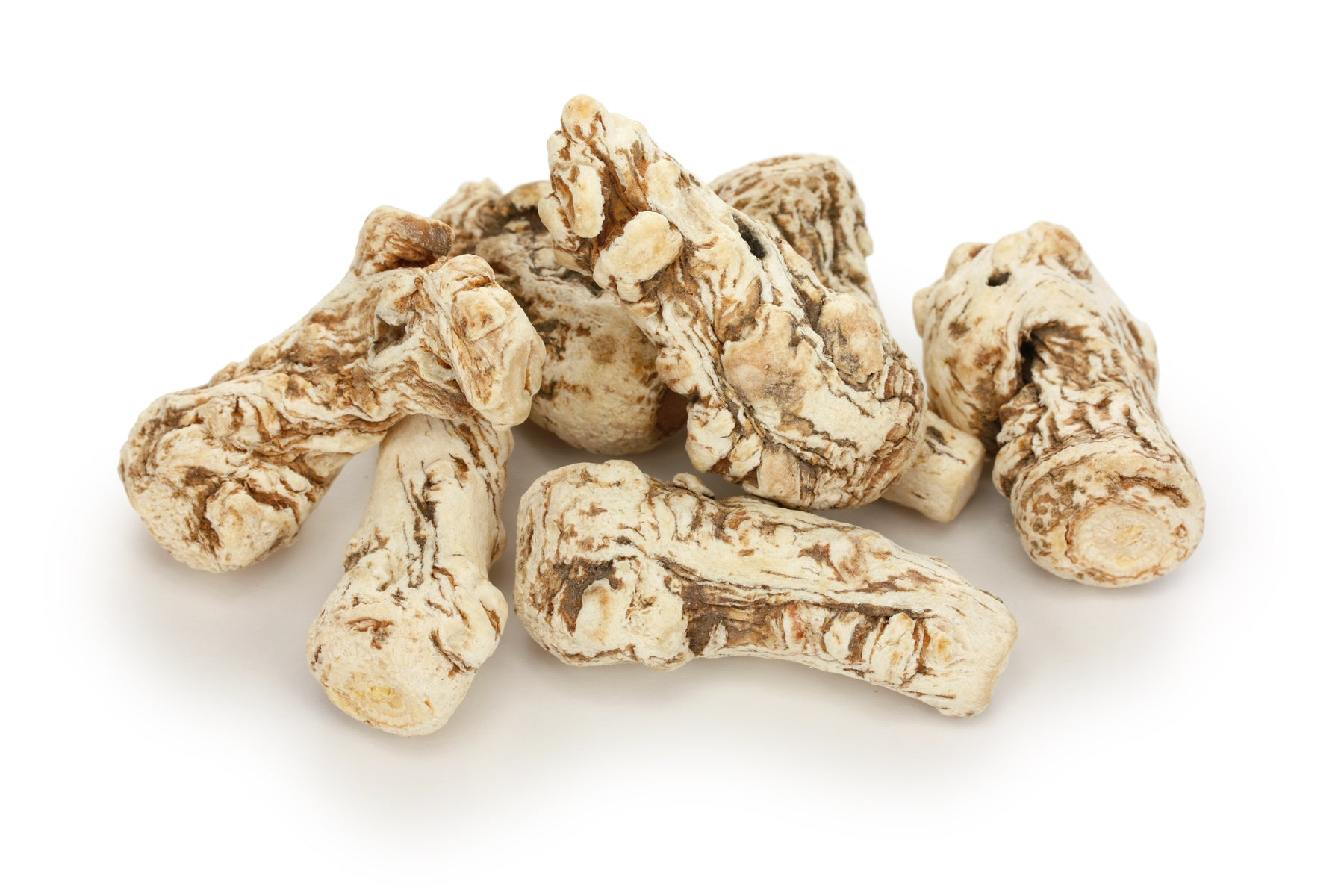
Many people reach for medications to manage health conditions. The more medication we ingest, however, the likelier our bodies are to build up a tolerance over time. For example, if you regularly take Advil for headaches, you may need a higher dosage for the same relief. This leads to increasing frequency and dosages, with steadily decreasing rates of return.
That’s certainly true with allergy treatments—there is strong evidence that regular allergy medications lose effectiveness over time.
The good news is that there are effective vitamins, minerals, and herbs for allergies. Treating allergies naturally can even strengthen your immune system and provide your body with better adrenal support.
This enables you to fight allergies while helping your body fight off future illnesses.
Treating Allergies with Herbal Medicine
Rooted in ancient healing practices, traditional Chinese remedies for allergies offer time-honored potential for managing several symptoms, including:
- Sneezing
- Itching
- Nasal congestion
- Respiratory distress
- Inflammation
Using the wisdom of Traditional Chinese Medicine (TCM) for allergies involves using herbs to alleviate allergic responses to triggers like pollen, dust, or pet dander.
This method for fighting allergies is known as an orthomolecular approach, which focuses on using nutritional supplements to boost the body’s natural defenses. This approach works to correct dietary imbalances in your body that can affect the immune system, helping you fight off allergies naturally.
Can Herbs Be Used as a Standalone Treatment for Allergies?
While herbs can relieve many allergy sufferers, they are often used with other TCM therapies. In addition to using herbs for allergies, acupuncture, diet modifications, and lifestyle changes may also be recommended. Your practitioner can work with you to develop an integrated treatment plan tailored to your specific needs.
Do Chinese Herbs for Allergies Need to Be Used Continuously?
Depending on the specific herbs and the severity of your allergies, practitioners recommend either continuous or as-needed use. Some Chinese remedies for allergies may need to be taken consistently to maintain their therapeutic effects. Others can be used as needed to manage acute allergy symptoms or temporary flare-ups.
Chinese herbs vary in dosage and form. Explore a variety of supplements and herbs for allergies here.
What Herbs Are Good for Allergies? 6 Herbal Remedies
Allergies can be challenging to manage, but a range of Chinese herbs for allergies can offer relief. These six supplements and natural herbs can be used to help fight off allergies and mitigate discomfort.
While these herbs show promise to relieve allergies, always consult with your doctor or herbalist before incorporating them into your routine.
1. Licorice Root
Licorice root treats allergies by increasing the production of the adrenal glands to produce hormones that fight allergies and illnesses. It also inhibits inflammation.
Licorice root produces interferon, a natural chemical in the body that fights pathogens. As a versatile form of Traditional Chinese Medicine for allergies, you can try licorice root as a tea, drinking it three times per day, or ingest capsules to reap the benefits.
2. Astralagus
Astralagus, a potent tool in relieving allergies, can boost metabolic activity and the immune system in the body. It can also help you build resistance to flu and colds while enhancing your body's production of interferon.
Astralagus is available in many forms, including capsules, extracts, teas, and powders. The recommended dosages vary based on the product's concentration. One study noted that regular use resulted in notable improvements in allergy symptoms.
3. Capsicum
Capsicum, also known as red or chili pepper, is very high in vitamin C and quercitin, a natural antihistamine. This herb can help your body fight infections, boost energy, and help relieve bronchitis, asthma, and colds.
Capsicum, which contains allergy-fighting capsaicin, is available as a Traditional Chinese Medicine for allergies, but it’s also available as a culinary spice. This can be incorporated into your cooking for flavor and to relieve allergies.
Read more about the benefits of capsaicin for health.
4. Goldenseal Root
Goldenseal root is renowned for its ability to soothe inflammation and provide antibiotic effects. It contains hydrastine and berberine, both of which have potential antihistamine and immune-boosting effects.
Goldenseal root is a valuable herbal remedy for allergies, especially hay fever. It can be used topically or ingested as a supplement.
5. Vitamin C with Quercetin
Vitamin C with quercetin supplements are widely available in tablet or capsule form. This is a very powerful herb for allergies that provides antihistamine support. Vitamin C also helps your immune system.
This supplement is typically taken with meals to ensure good absorption without digestive discomfort.
6. Our Recommendation: Coltalin Tablets
Coltalin tablets are a convenient and effective form of Chinese medicine for allergies. This product helps relieve many symptoms of the common cold as well. Coltalin tablets contain ingredients designed to reduce pain and fever, nasal congestion, and allergic responses. 
Some of the illnesses it treats include hay fever, respiratory allergies, sore throat, and fever. Coltalin can be taken as directed based on your individual health needs.
Learn more about the herbs used in Traditional Chinese Medicine for allergies, cold, and flu symptoms.
FAQ: Chinese Herbs for Allergies
What are the recommended dosages and forms for using herbs to treat allergies?
When using herbs for allergies, it's important to follow recommended dosages and consider the form of the herb. Traditional Chinese remedies may come in capsules, teas, tinctures, or other preparations. Proper dosing is essential, as too little may not be effective, while too much could cause side effects. Talk to a qualified practitioner for guidance on appropriate dosages based on your specific allergy symptoms and overall health.
Are there any potential side effects or interactions associated with using herbs for allergies?
Like any medicine, herbs taken for allergies could interact with other medications or supplements. Some herbs may also cause side effects in certain individuals. Be sure to disclose your health status, full medical history, and list of current medications or supplements to your practitioner before starting any herbal regimen. This will help identify any risk of side effects.
How long does it usually take to experience relief from allergy symptoms when using herbs?
The timeline for experiencing relief from allergy symptoms depends on the herbs used, the severity of your allergies, and your body’s response. Some herbs may provide more immediate relief, while others can take several weeks or more to take full effect. Always follow your treatment plan consistently and communicate any lack of progress with your practitioner.
Are there specific Chinese herbs that are more effective for certain types of allergies?
Certain Chinese herbs may be particularly well-suited for specific types of allergies. For example, some herbs are traditionally used to combat seasonal allergies, while others may be more effective for food allergies or other triggers.
Can herbs help strengthen the immune system and reduce the frequency or severity of allergies over time?
In addition to managing allergy symptoms, many traditional Chinese herbs used for allergies are believed to help strengthen the immune system over time. By bolstering the body's defenses, they may reduce the frequency or severity of allergy attacks, providing long-term benefits. It may be necessary to use them consistently and adopt a more holistic approach to experience these immune-boosting effects.
Are there specific herbs that are safe and effective for children or pregnant women with allergies?
If you or your child suffers from allergies, always discuss safe herbal options with your provider. Certain herbs may be contraindicated during pregnancy or for young children due to potential risks or side effects. Your practitioner can recommend gentle, effective remedies that are appropriate for you.
What steps should I take if I experience any side effects or lack of improvement while using herbs for allergies?
While traditional Chinese herbal remedies are generally considered safe when used properly, tracking your progress and monitoring your health for adverse reactions is important. If you experience any concerning symptoms or lack of improvement after a reasonable period of time, consult your practitioner immediately.
Using Chinese Herbs for Allergy Relief
Your journey to natural allergy relief starts by exploring the benefits of traditional Chinese herbs for allergies. If you experience allergies and are curious about specific herbs, dosages, or holistic allergy management, reach out to our team for guidance.
Take the first step toward a more balanced approach to your allergy symptoms with traditional, natural remedies. Explore more herbs for allergies today.


